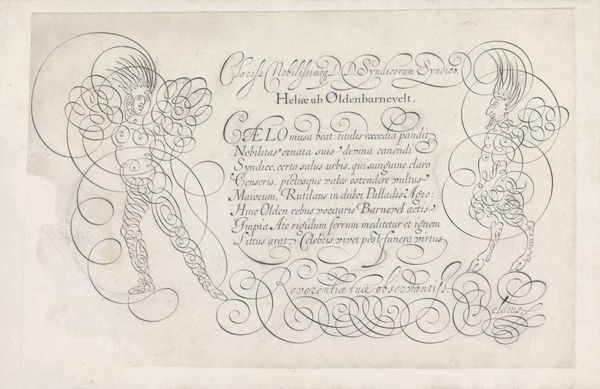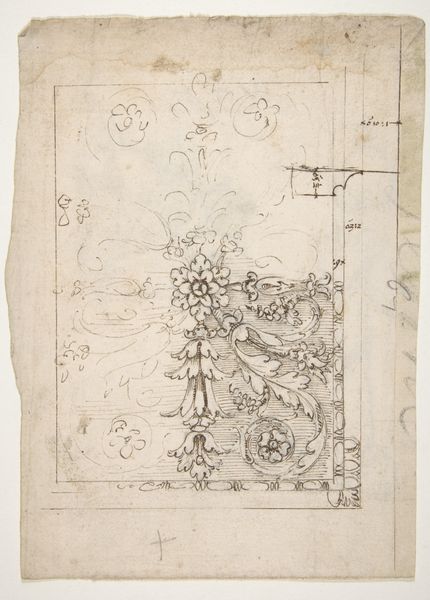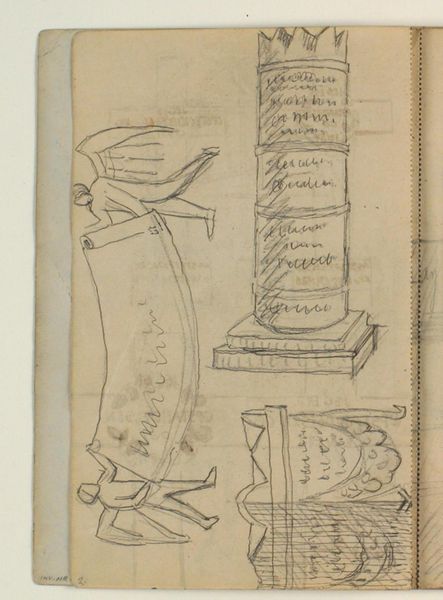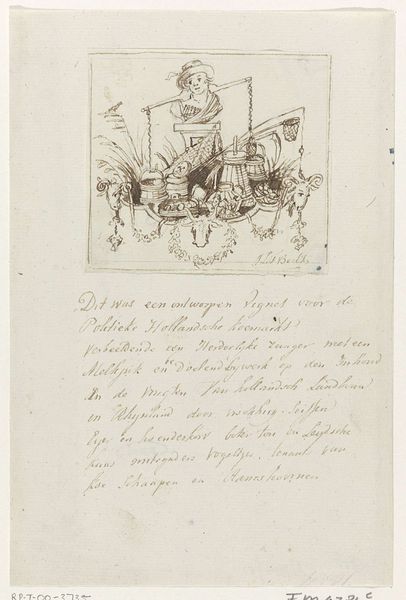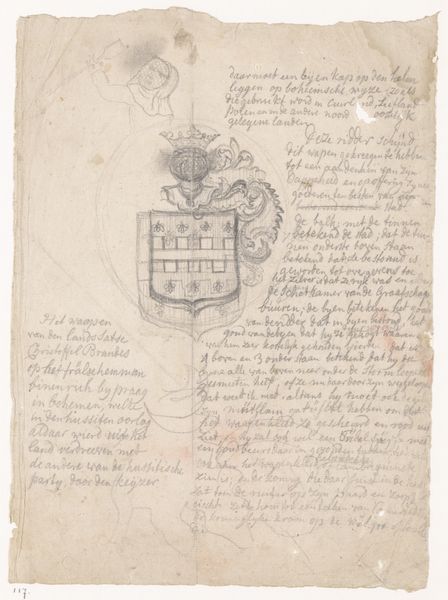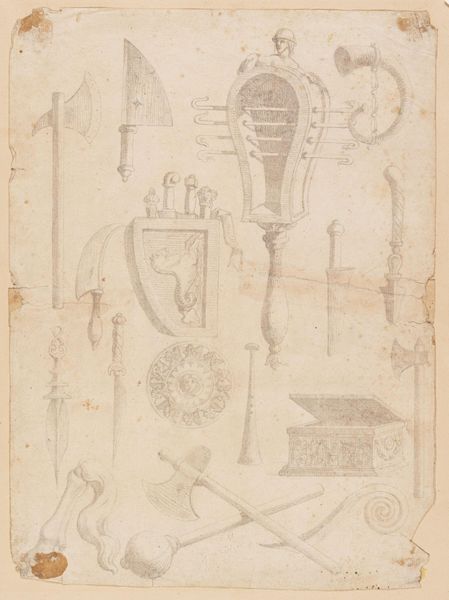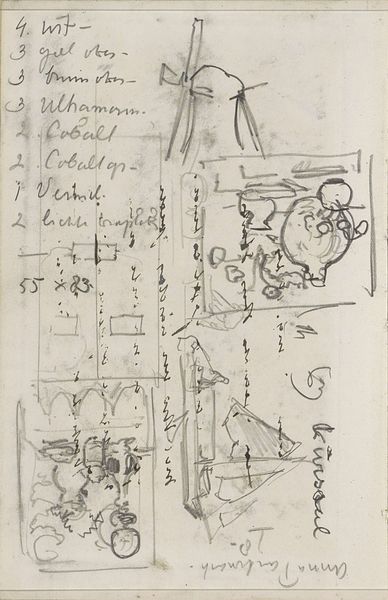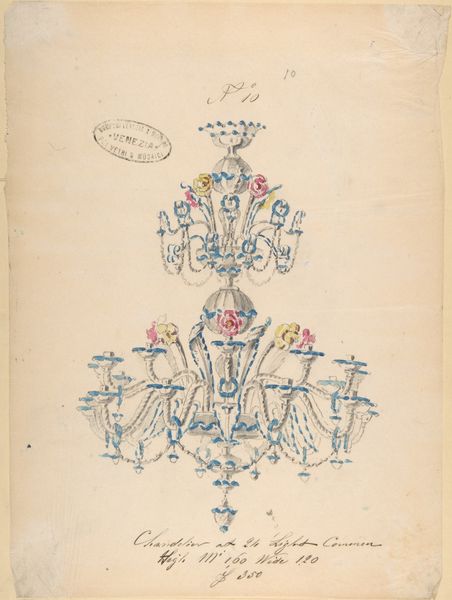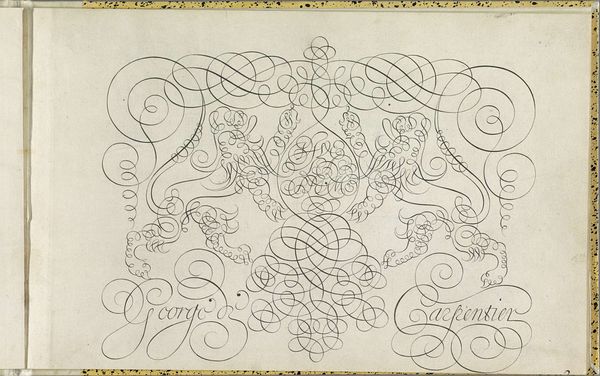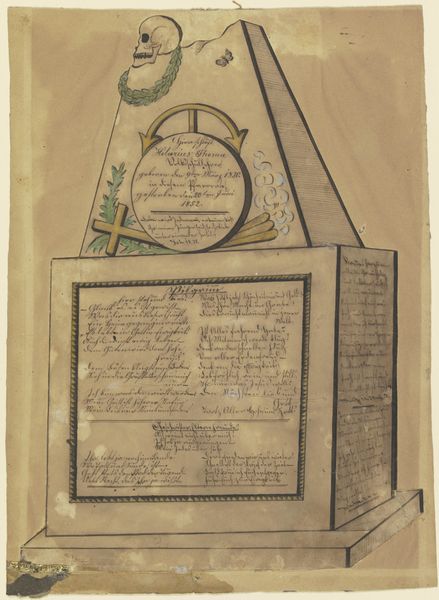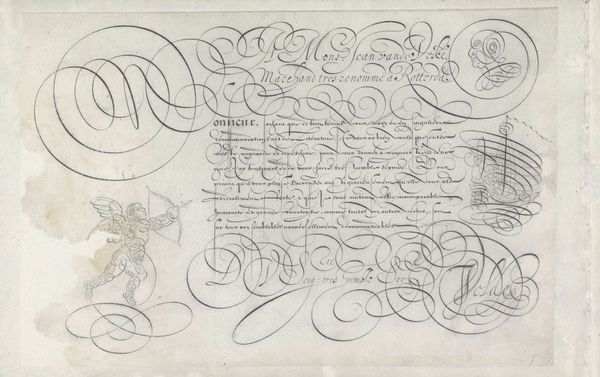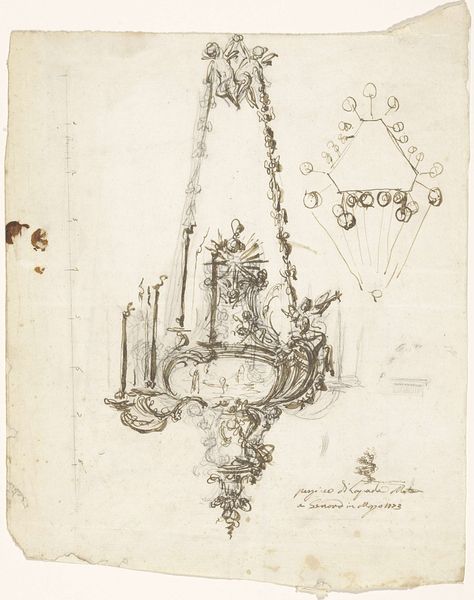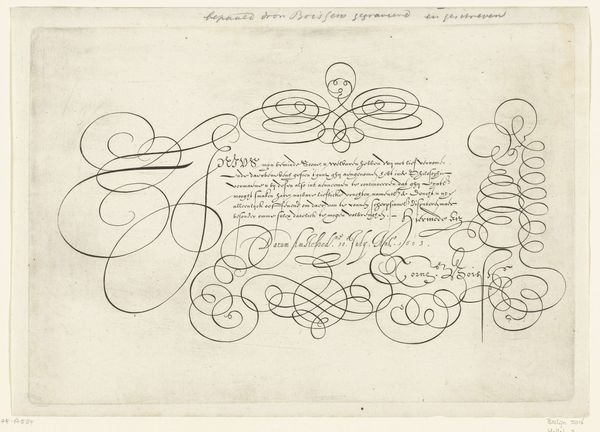
Studier af oldkristne mosaikker fra S. Clemente Rom, samt notater vedrørende farverne 1902 - 1905
0:00
0:00
drawing, coloured-pencil, watercolor, ink
#
drawing
#
byzantine-art
#
coloured-pencil
#
medieval
#
water colours
#
ink painting
#
watercolor
#
ink
#
coloured pencil
#
history-painting
#
miniature
Dimensions: 154 mm (height) x 192 mm (width) (bladmaal)
Editor: This work is "Studies of Old Christian Mosaics from S. Clemente Rom, as well as Notes on the Colors" by Niels Larsen Stevns, made between 1902 and 1905 using drawing, colored pencil, watercolor and ink. It's quite charming, like a glimpse into an illuminated manuscript. How do you interpret this piece, particularly its relationship to historical art? Curator: It’s fascinating how Stevns engages with Byzantine art in early 20th century Denmark. This wasn't just an aesthetic choice, it's a deliberate positioning. Medieval art, and especially Byzantine mosaics, enjoyed renewed interest in the late 19th and early 20th centuries. What political and cultural statements could an artist make by embracing, rather than shunning, medieval forms? Editor: It’s almost a rejection of the industrial world and modern artistic movements. Was there a social function tied to the choice of medium? Curator: Precisely! And consider watercolor, colored pencil and ink - portable media, conducive to study and replication. Stevns wasn’t just creating an artwork; he was documenting, analyzing, and, in a sense, possessing the aesthetic of a distant culture and era. This "possession" then gets circulated through exhibitions, teaching, etc. – influencing the broader culture. Does the choice of media then become a question of accessibility and education? Editor: It makes you wonder about the power dynamics embedded in studying and representing another culture’s art. It's been enlightening to understand the layers of social context within what seems like a simple study. Curator: Indeed, it prompts reflection on our own roles as interpreters and transmitters of cultural heritage. The sketch highlights how an artist may also function as a historian.
Comments
No comments
Be the first to comment and join the conversation on the ultimate creative platform.
